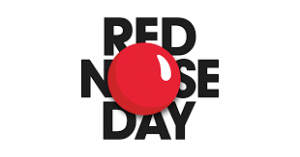At a time when the UK aid budget is under concerted attacks from right-wing Tories, UKIP and the media, it might seem churlish to criticise one of the great ‘set piece’ British events that focus our attention on development in Africa. However, David Lammy’s Guardian comment is a necessary and welcome contribution to Red Nose day, says WILL BROWN.
Lammy takes aim at the persistence of negative and simplistic images of Africa. “Africa may have changed beyond recognition,” he says, “but over the generations knowledge and attitudes in Britain haven’t.”
It’s not even that these issues are new. Writing about the Make Poverty History campaign, Sheffield academic Graham Harrison noted back in 2010 that the campaign set out with the intention of having a focus on ‘justice, not charity’ making a strong case that existing international structures of debt, aid, and trade were morally unacceptable.
Yet, Harrison argued, the justice-based campaign was ‘hijacked’ by a humanitarian campaign on behalf of ‘Africa’, which configured Africans as ‘poor’, and ‘lacking’, and illustrated how ‘difficult it is to frame Africa within a British campaign for global social justice’. The challenge for the future, Harrison noted, was to present Africa in less distant and traditional imperial ways but that this required challenging prevailing assumptions and values within Britain, rather than pandering to them.
However, Lammy notes, NGOs continue to perpetuate existing stereotypes because it is effective in raising money. The media repeats these failings, operating with only two images of the continent: powerful and corrupt or destitute and starving.
Instead Lammy calls on Comic Relief to have ‘higher expectations of itself and its audience’; to ‘not just feel guilty, but angry’ at the arms trade, corporate corruption and trade barriers. We have, he says, ‘an international market that places more restrictions on the exchange of bananas than it does on AK47s’. It also requires us to see the complexity and successes in Africa and Africans as equals to be respected not victims to be pitied.
It is important too, that in defending the UK’s international development efforts, Labour also takes up the challenge of moving the debate from one of charity to one of justice, as former Shadow International Development Secretary Ivan Lewis and the current incumbent in the post, Kate Osamor have been doing.
Labour’s own policy review process – the National Policy Forum – has now launched its consultation phase. You can access its ‘International’ policy commission consultation document here.



